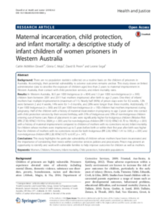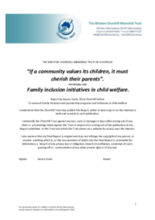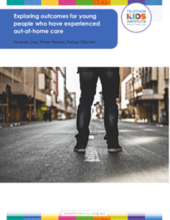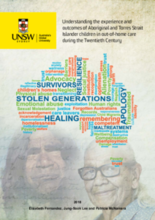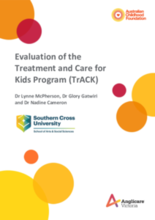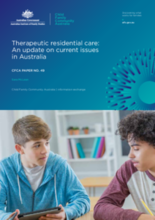Displaying 361 - 370 of 579
The aim of this study was to compare the health of 4- to 6-year-old children in out-of-home care (OOHC) in Southern Tasmania, Australia with their peers.
This study draws on linked administrative data to describe the exposure of children aged less than 2 years to maternal imprisonment in Western Australia, their contact with child protection services, and infant mortality rates.
In this opinion piece from Independent Australia, Gerry Georgatos refers to Australia's recent branding as the "child removal capital of the world" and the negative impacts of child removal and family separation on children and families.
This Churchill Fellowship has explored family inclusion initiatives in the USA, Canada, Norway and the UK and has found that family inclusion is a pathway to better outcomes for children and young people including restoration and permanency.
For this study, physical and mental health, school achievement, justice involvement and child protection contact were explored for three cohorts of children in Australia born between 1 January 1990 and 30 June 1995.
This report details a component of the UNSW national Long-term Outcomes of Forgotten Australians Study reported in No child should grow up like this which explored the in-care and after-care experiences of adults who spent their childhoods in institutions and foster care during the period 1930 to 1989. In this report, the focus is on Stolen Generations survivors and other Aboriginal and Torres Strait Islander individuals who participated in the research.
This small pilot study to explores what is currently taught to future doctors about children in out-of-home care (OOHC) and found that there is no formal teaching about these children in the University of Melbourne Doctor of Medicine course.
The Treatment and Care for Kids (TrACK) program is a therapeutic home-based care program providing intensive intervention for children and young people with complex needs in Australia. The findings of this evaluation demonstrate that TrACK produces tangible and lasting results for children.
The report presents an evaluation of the second stage of the the Developing Independence (DI) in Out-of-home care (OOHC) pilot in Melbourne, Australia.
This paper provides an update on developments in therapeutic residential care, discusses the implications of these developments, and touches on further issues and dilemmas that should form the focus of research and practitioner partnerships in the future.

